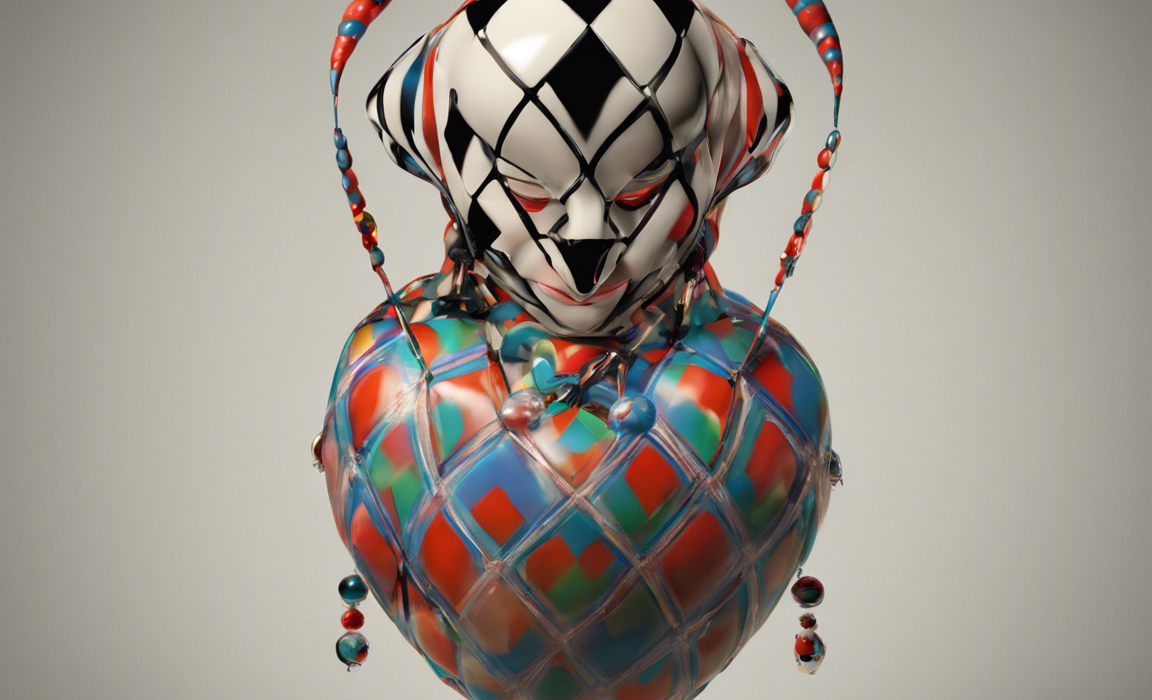Harlequin ichthyosis, also known as harlequin fetus, is a rare and severe genetic skin disorder that affects newborn babies. It is characterized by thick, diamond-shaped plates of hardened skin that cover the body, giving the appearance of armor or scales. The condition is caused by a mutation in the ABCA12 gene, which is involved in the development of the skin’s outer layer, the epidermis. This mutation leads to the production of abnormally thick skin that is unable to function properly, resulting in the characteristic symptoms of harlequin ichthyosis.
Symptoms of Harlequin Fetus
- Thick, diamond-shaped plates of skin
- Deep cracks in the skin
- Ectropion (eyelids that turn outward)
- Eversion of the lips
- A flat nose
- Restricted movement of the limbs
- Respiratory difficulties
Causes of Harlequin Fetus
Harlequin ichthyosis is caused by a mutation in the ABCA12 gene, which is inherited in an autosomal recessive pattern. This means that both parents must carry a copy of the mutated gene in order for a child to be affected. When two carriers of the mutated gene have a child, there is a 25 percent chance that the child will inherit two copies of the mutated gene and be affected by harlequin ichthyosis.
Treatment of Harlequin Fetus
There is currently no cure for harlequin ichthyosis, and treatment is focused on managing the symptoms and complications associated with the condition. Moisturizing the skin regularly is essential to prevent cracking and infection. Oral retinoids may be prescribed to help reduce scaling and improve skin function. Physical therapy may also be recommended to help improve mobility and range of motion in affected limbs.
Complications of Harlequin Fetus
Harlequin ichthyosis can lead to a number of complications, including dehydration due to the loss of fluids through the cracked skin, hypothermia due to the inability to regulate body temperature, respiratory infections due to the restricted movement of the chest and lungs, and feeding difficulties due to the eversion of the lips and restricted mobility of the mouth.
Coping with Harlequin Fetus
Coping with a diagnosis of harlequin ichthyosis can be incredibly challenging for both the affected child and their family. It is important to seek support from medical professionals, genetic counselors, and support groups to help navigate the complexities of the condition. Psychological support is also crucial to help manage the emotional impact of living with a rare and visible disorder.
Prognosis of Harlequin Fetus
The prognosis for individuals with harlequin ichthyosis varies depending on the severity of the condition and the presence of complications. With advances in medical care and supportive treatments, many individuals with harlequin ichthyosis are able to survive into adulthood. However, the condition can significantly impact quality of life and may require ongoing medical care and support.
Frequently Asked Questions (FAQs)
- Is harlequin ichthyosis curable?
-
Currently, there is no cure for harlequin ichthyosis. Treatment focuses on managing symptoms and complications.
-
Can harlequin ichthyosis be detected before birth?
-
Harlequin ichthyosis can sometimes be detected through prenatal genetic testing if both parents are known carriers of the mutated gene.
-
What is the life expectancy of someone with harlequin ichthyosis?
-
The life expectancy of individuals with harlequin ichthyosis has improved with medical advances, and many can survive into adulthood.
-
Can harlequin ichthyosis be passed down through generations?
-
Harlequin ichthyosis is inherited in an autosomal recessive pattern, meaning it can be passed down through generations if both parents are carriers of the mutated gene.
-
What are the challenges of living with harlequin ichthyosis?
- Challenges of living with harlequin ichthyosis may include skin care management, mobility issues, respiratory difficulties, and psychological impact.
In conclusion, harlequin ichthyosis is a rare and severe genetic skin disorder that presents significant challenges for affected individuals and their families. While there is currently no cure for the condition, advances in medical care and supportive treatments have improved outcomes for those living with harlequin ichthyosis. It is crucial for individuals with the condition to have access to comprehensive medical care, support services, and psychological support to help manage the complexities of the disorder and improve quality of life.


